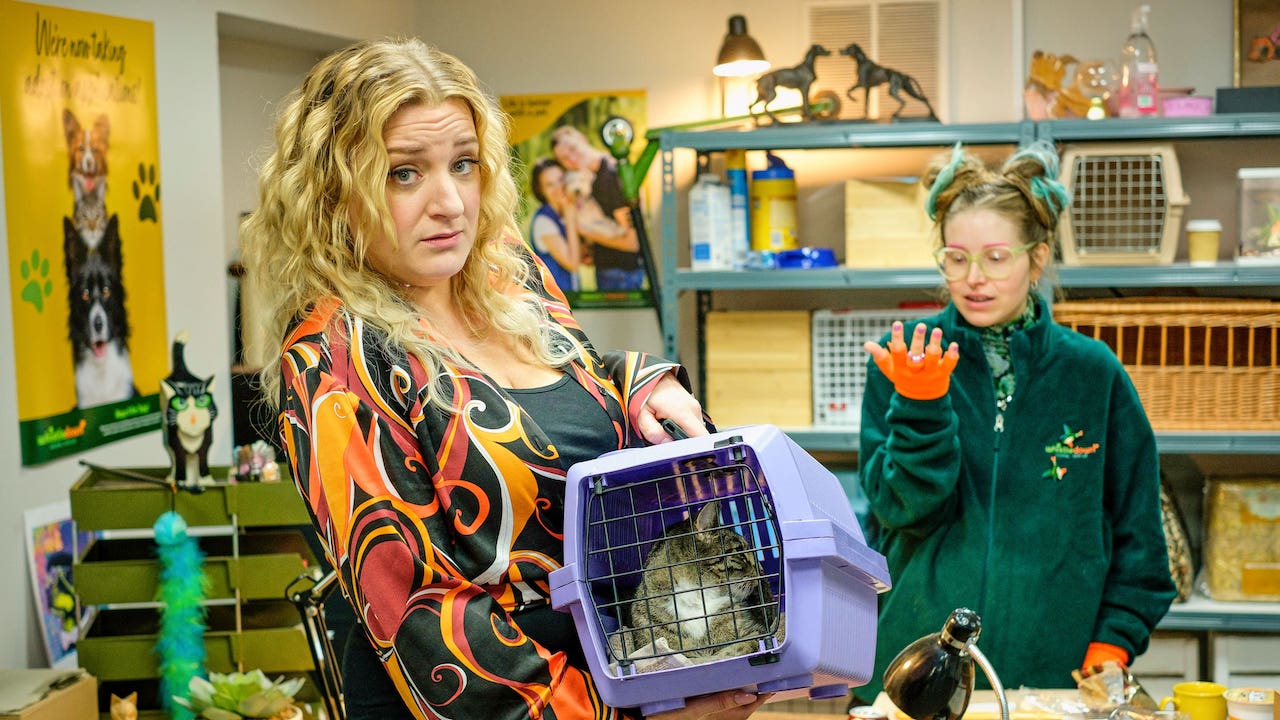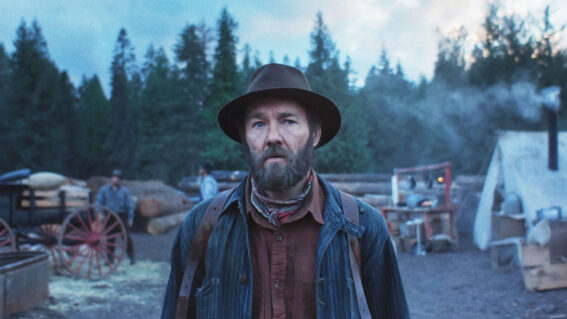Clarisse’s Show of the Week: Am I Being Unreasonable? is a wildly funny yet unsettling look at motherhood
IRL mates Daisy May Cooper and Selin Hizli splice their BBC comedy with moments of genuine chaos and terror.

We’re all drowning in content—so it’s time to highlight the best. In her column, published every Friday, critic Clarisse Loughrey picks a great new show to watch. This week: an early look at the BBC’s chaotic comedy of motherhood and female friendship Am I Being Unreasonable?, available now on BBC iPlayer and coming soon to countries outside the UK.
Am I Being Unreasonable?: Season 1
There’s a corner of Mumsnet, the parenting forum de rigueur, that consists almost entirely of women unsure what they’re allowed to feel. Titled “Am I Being Unreasonable?”, it’s peppered with timorously phrased anecdotes about husbands who steal breast milk for themselves or make pirate noises during sex. Inevitably, each post ends with the inquirer, having stated something self-evidently insane, attempting to hand-wave the issue away as a probable delusion.
These are wild, funny, borderline improbable stories underpinned by the wretched psychological truth that women have been trained to disregard their own boundaries to the point that their reality no longer seems to function properly.
Daisy May Cooper has made use of both the title, and the implicit despair, that belongs to this corner of the internet for a new series—her first major project since her BAFTA-winning mockumentary about rural life, This Country. Am I Being Unreasonable? seems, on the one hand, to tick off the BBC’s current requirements for female-led comedies (it is, as they all are, fundamentally about the “messiness of womanhood”).
But, in an attempt to faithfully capture what it feels like to be gaslit by the entire patriarchy, it also slips frequently and unexpectedly into the realm of psychological thriller. At times, the violent see-saw between tones can seem off-putting. That’s sort of the thrill of it.
The Cotswolds-set series first introduces us to Cooper’s Nic in a moment of grungy but idyllic romance. She’s drunkenly pottering around a train platform with a mysterious man (David Fynn). He pees chivalrous dedications to her in the snow. They kiss, lustily, as the carriage doors shut between them. Look, his coat button’s trapped. What a peculiar sight—her inside, him outside, as he’s dragged alongside the now-accelerating transport. His face is flattened against the glass. His cries for help are carried away by the wind. Oh god. A roar. The blur of a second train. Suddenly, he’s gone.
When Nic returns to normality, a life with her disengaged husband (Dustin Demri-Burns’s Dan) and exasperated child (Lenny Rush’s Ollie), she’s clueless as to what emotions suit the situation at hand. She was having an affair with the dead man. So she must grieve in secret. Perhaps that’s why her new friend Jen (co-creator, co-writer, and Cooper’s real-life friend Selin Hizli), who she bonds with over smuggled gin at a school fete, feels like such an escape. Here, Cooper and Hizli bottle the exquisite relief of finding someone who seems to come from your own universe—or at least appears as out of sync with everyone else as you do.

They drink together and daydream of how, if they were men, they could fulfil the role of ideal partner to the other, willing to shoulder the lingering musk of a trip to Lush and argue about RuPaul’s Drag Race contestants. This is female friendship as a way to shelter from the storm, immediate and deep-rooted in its intimacy. But Jen isn’t what she seems. What about her is truth, and what is a lie?
Hizli’s broken, quivering, desperate-to-please smile contrasts beautifully against Cooper’s full-body succinctness. When Nic demands that Jen explains herself, she responds to the subsequent, emotional outpouring with: “You did really well. You kept it to five minutes 39.”

And though Cooper and Hizli’s script has its smatterings of traditional sitcom humour—Rush plays one of the best “precocious TV sons” we’ve had in a while—the show’s successful enough in its untethering from reality that even the most harmless of eccentricities can read as a threat. Take Nic’s neighbour Lucy (Karla Crome), who sidles up to her one day in order to suggest that she (a) brings quiche to the memorial for her dead lover and (b) uses said memorial to test the waters for her fledgling comedy career.
You half-expect her eye to start twitching during that last sentence. How could she possibly be that clueless about grief? Has everyone in Nic’s life been replaced with robots? Has the universe conspired revenge against her, as punishment for some unplaceable feeling of guilt? Am I Being Unreasonable? is driven by the sort of mildly delusional questions that I have a feeling many will find all too familiar. It’s the reason entire forums exist just so women can double-check they aren’t crazy.
Am I Being Unreasonable?: Season 1






















